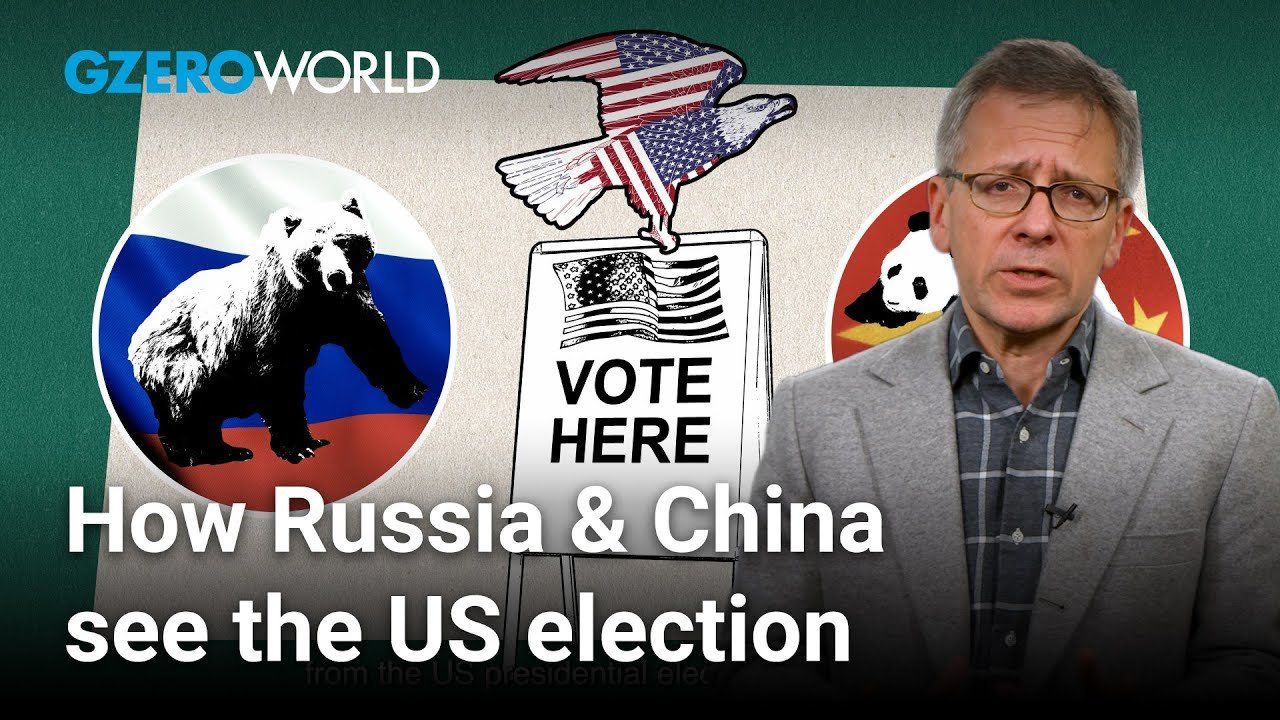Ian Explains
Ian Explains: Who does China and Russia want to win the US election, Biden or Trump?

Ian Explains: Who does China and Russia want to win the US election, Biden or Trump? | GZERO World

What do America’s biggest adversaries have to gain–and lose–from the US presidential election in November? The 2024 Donald Trump vs Joe Biden rematch will be the first time in US history that candidates from both major parties have sat in the Oval Office. So Russia and China have a pretty good idea of what a second term from either candidate might look like, as well as a vested interest in manipulating the outcome in their favor, Ian Bremmer explains on GZERO World.
From Russia’s perspective, the Kremlin has a long and documented history of influencing US elections for Trump. Intelligence agencies have confirmed Russia’s attempts to manipulate the 2016 and 2020 elections in his favor using social media bots, misinformation, bogus news sites, and hacking the Democratic National Committee’s emails. But now, intelligence experts and government officials warn China is copying Russia’s playbook, spreading conspiracy theories and misinformation online to amplify support for President Trump and sow distrust among American voters.
Yet Trump regularly attacks China on the campaign trail. He’s accused Beijing of unfair trade practices and currency manipulation. During the pandemic he publicly called Covid-19 the “China flu” and his administration imposed billions of dollars in tariffs on Chinese imports.
Why would Beijing support a candidate so openly hostile to its interests? Watch Ian Explains to find out why both China and Russia are eager for a Trump win in 2024.
People in support of former South Korean President Yoon Suk Yeol rally near Seoul Central District Court in Seoul on Feb. 19, 2026. The court sentenced him to life imprisonment the same day for leading an insurrection with his short-lived declaration of martial law in December 2024.
65: The age of former South Korean President Yoon Suk Yeol, who was sentenced to life in prison on Thursday after being found guilty of plotting an insurrection when he declared martial law in 2024.
In an era when geopolitics can feel overwhelming and remote, sometimes the best messengers are made of felt and foam.
The Hungarian election is off to the races, and nationalist Prime Minister Viktor Orbán is facing his most serious challenger in 16 years.
Does skepticism rule the day in politics? Public opinion data collected as part of the Munich Security Conference’s annual report found that large shares of respondents in G7 and several BRICS countries believed their governments’ policies would leave future generations worse off.